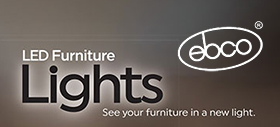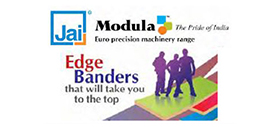Warning: Trying to access array offset on value of type null in /var/www/vhosts/woodnews.in/httpdocs/wiphp/wi_articledetail.php on line 33
Warning: Trying to access array offset on value of type null in /var/www/vhosts/woodnews.in/httpdocs/wiphp/wi_articledetail.php on line 34
Warning: Trying to access array offset on value of type null in /var/www/vhosts/woodnews.in/httpdocs/wiphp/wi_articledetail.php on line 35
Warning: Trying to access array offset on value of type null in /var/www/vhosts/woodnews.in/httpdocs/wiphp/wi_articledetail.php on line 36
Warning: Trying to access array offset on value of type null in /var/www/vhosts/woodnews.in/httpdocs/wiphp/wi_articledetail.php on line 37
Warning: Trying to access array offset on value of type null in /var/www/vhosts/woodnews.in/httpdocs/wiphp/wi_articledetail.php on line 38
Warning: Trying to access array offset on value of type null in /var/www/vhosts/woodnews.in/httpdocs/wiphp/wi_articledetail.php on line 39
Warning: Trying to access array offset on value of type null in /var/www/vhosts/woodnews.in/httpdocs/wiphp/wi_articledetail.php on line 40
Warning: Trying to access array offset on value of type null in /var/www/vhosts/woodnews.in/httpdocs/wiphp/wi_articledetail.php on line 43
Warning: Trying to access array offset on value of type null in /var/www/vhosts/woodnews.in/httpdocs/wiphp/wi_articledetail.php on line 44
No Article Added
Comments

- In Silver Jubilee year, propelling growth remains the ‘mantra’
- PHANTOM HANDS
- ‘Fevicol Pro series is disruptive innovation’
- Furtech Show 2025 returns to Dubai in September
- Vert: the red-oak route to a cool-cool city
- Moisture? Measure twice, cut once!
- ‘Mirka has solutions for today, tomorrow, thereafter’
- On 50th anniversary, Ligna has more on offer
- Ukrainian designer redefines function through form
- New technology holds key to plywood industry survival
- Light on solid wood’s role in neuro-diverse spaces
- Evolving furniture demands require ace tooling
- Interzum 2025: rethinking resources
- CIFF Guangzhou opens in March in two phases
- Feria Hábitat València to expand into design
- WOFX 2024 was an unprecedented success
- HIFF 2025 promises to be bigger, better
- Event-Calendar
- Hettich’s ‘Magic lights’ are sheer brilliance
- Blum’s Revego systems for new space concepts
- Häfele’s MatrixBox combines functionality, sophistication
- How Protego’s oils protect exterior woodwork
- Ineos adds new ABS grade
- 2025 outlook for laminate industry
- A functional masterpiece of garden architecture
- European symposium highlights formaldehyde emission limits
- Egger adopts holistic approach to waste management
- Role of PUR adhesives in flat lamination
- Weber machines dovetail into best practices
- Hymmen’s smart2i facilitates digitally mapping production
- Schmalz compact ejectors lead ‘green’ automation
- Arnavi introduces Rema FX 250 table saw
- HAKS helps with design, tech, training
- Transforming woodworking with precision and efficiency
- ‘Cannot miss’: IWMMTA programme for industry
- Premium woodworking machinery from Jai
- High-tech drilling machine, planer sander from Woodtech
- Innovation defines Turakhia products
- Intelligent door production lines from Aadhunik
- Aryamman introduces two exquisite new décors
- Biesse’s Rover Edge revolutionises edge banding
- Check out versatile, durable Canadian wood species
- Expert slide machinery manufacturer from Taiwan
- Ebco to unveil more functional fittings
- Felder to showcase its range of woodworking machinery
- Frontaline has honeycomb core for shutters
- Holytek remains finger-jointing champion
- Homag to showcase its latest innovations
- ICA Pidilite: defining the future of wood coatings
- Innovator’s veneer splicers are UltiMate
- Premium quality steel belts from IPCO
- Precision solutions from Jacinth Machineries
- UV flatbed printers for furniture, interiors
- NextGen sanding tools from Mirka
- Pro-grade edge bander from OAV
- Check out the new Ornare ‘Surface’ range
- AM15K laminates meet new design challenges
- Richfill calibrated filler solves multiple problems
- SCM to present cutting-edge technologies
- Double-side tenoners, profilers from Technik
- Weinig’s Timbermat 5 is versatile planer, moulder
- Woodmaster’s machines ensure precision and efficiency
- Dieffenbacher’s ‘Osiris’ set to revolutionise fibreboard recycling
- Ebco Led lighting feature
- Jovas Tech Solutions – Redefining Woodworking Technology in India
- ITP: Crafting Excellence, Transforming Spaces
- “Greenlam Studio opens in Nashik”
- Dew River Group: Innovating Sustainable Wood Solutions
- Woodtech: Pioneering Advanced Woodworking Solutions in India








































